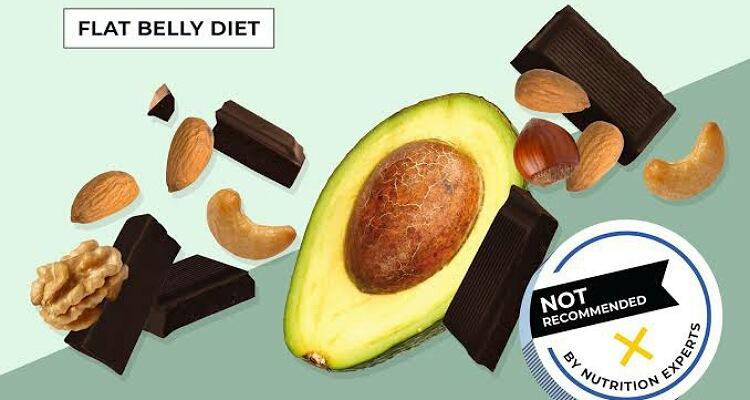The fat belly diet is for weight loss. It has a close similarity with the Mediterranean diet. Find the details, foods, health benefits and cons of this diet here.
The flat belly diet
Cynthia Sass, a certified dietitian working as a nutrition and wellness consultant, and former Prevention Magazine editor Liz Vaccariello created the flat belly diet. As the name suggests, this diet is typically for shedding the excess fats. It emphasizes whole foods of plant origin and closely resemble the famous Mediterranean diet.
The foods in this diet include nuts, seeds, whole grains, avocados, soybeans, dark chocolate, and olive oil. These foods are also part of the Mediterranean diet. But unlike the latter diet, the flat belly diet urges its followers to have calories restrictions.

The diet program lasts 32 days. The daily calories allowed are 1600 calories and these are to be eaten in four spaced meals. The diet promises a weight loss of 15 pounds in 32 days. The belief is that monounsaturated fatty acids, or MUFAs give a sense of fullness and prevent overeating. Additionally, these fatty acids kill the belly fats specifically and hence reduce weight.
Health benefits of the diet
The stress is on whole and plant based foods. Hence vegetarian and vegan eaters can consume it. Moreover, the diet can save the planet and prevent greenhouse gas emissions and reduce climate change.
There is a jumpstart in this diet wherein in the first 4 days, only 1200 calories is allowed. Later, 1600 calories is OK. One has to avoid sugary and processed foods with high fats and sodium. Intake of gas causing foods like cruciferous vegetables and legumes is discouraged. One can eat every 4 hours. The details are in a book that the creator of the diet wrote in 2008.

The diet is nutritious. Every foods can be consumed as long as calories limits are met. The foods are filling and have lots of dietary fiber. The foods are diverse and tasty. The diet promotes weight loss and has health benefits.
The health benefits include reduction of body inflammation and less risk of chronic diseases. Blood pressure control is possible and chances of heart diseases are lower. Additionally, it helps control blood sugar and reduce bad cholesterol of the body. It boosts brain alertness and prevents cognitive decline.
Cons of the diet
The diet developer has not provided any in-depth guidance on the diet. One needs to plan meals in advance and this could be tedious. Moreover, eating outside is limited. The diet could get monotonous and might be unsafe for certain people. These include children, pregnant and lactating mothers and those with eating disorders.
Read here: Sweet Laurel: history, ingredients, reach, and healthier and tasty cakes!

Restrictions of calories and legumes might harm the person. There could be some nutritional deficiencies cropping up in some followers of this diet. The diet is affordable overall though certain foods could be expensive such as nuts and seeds.
